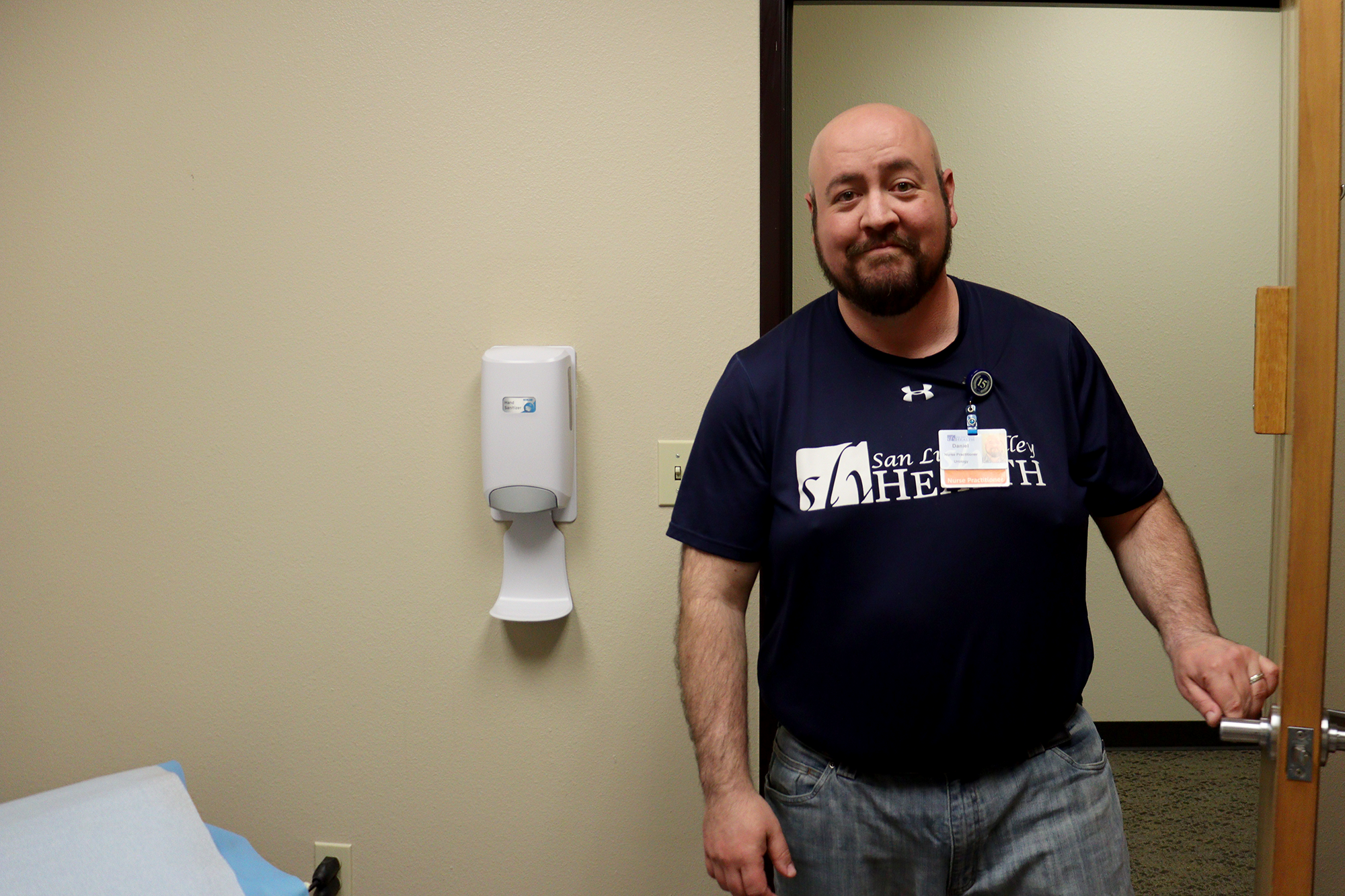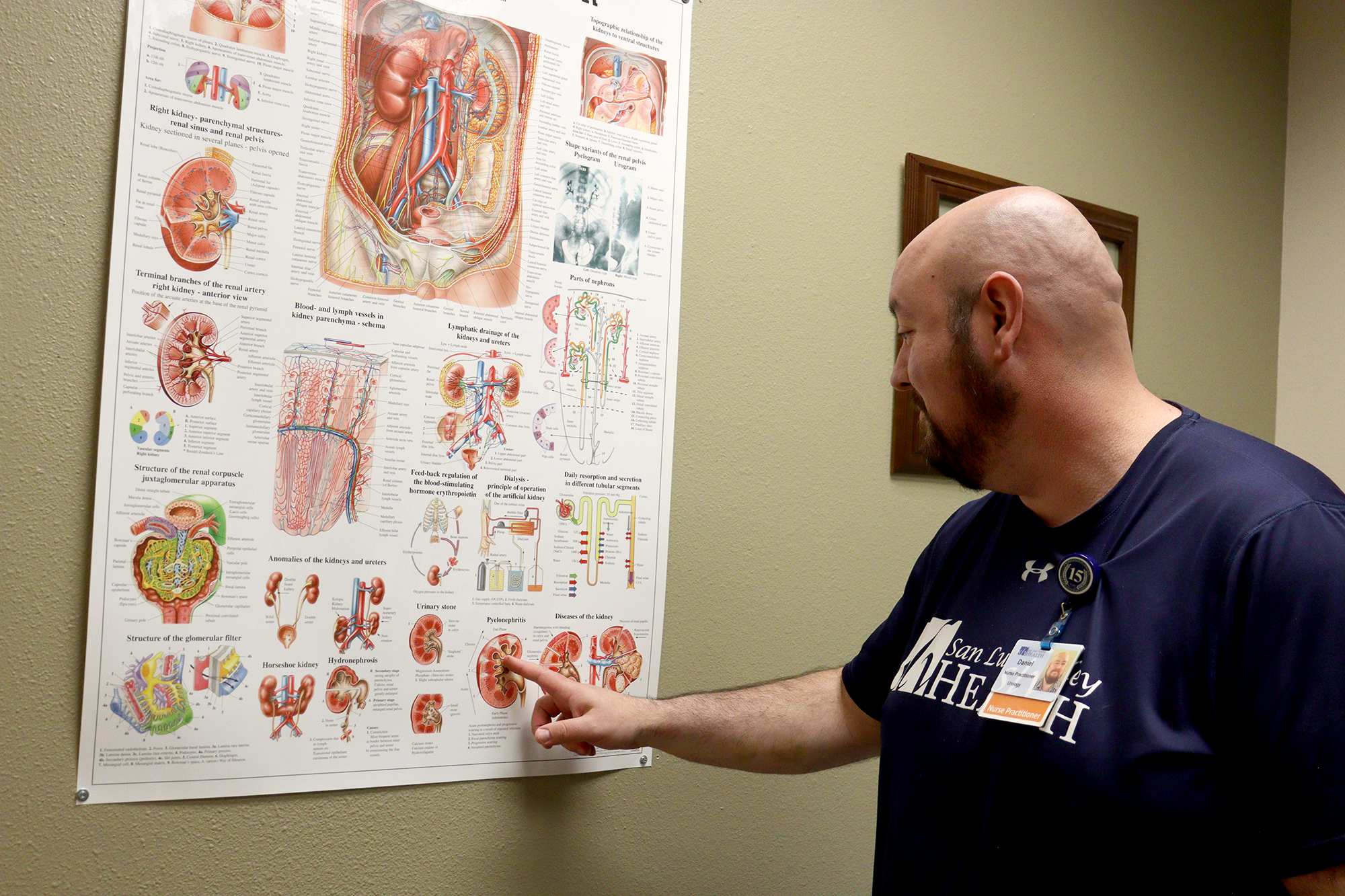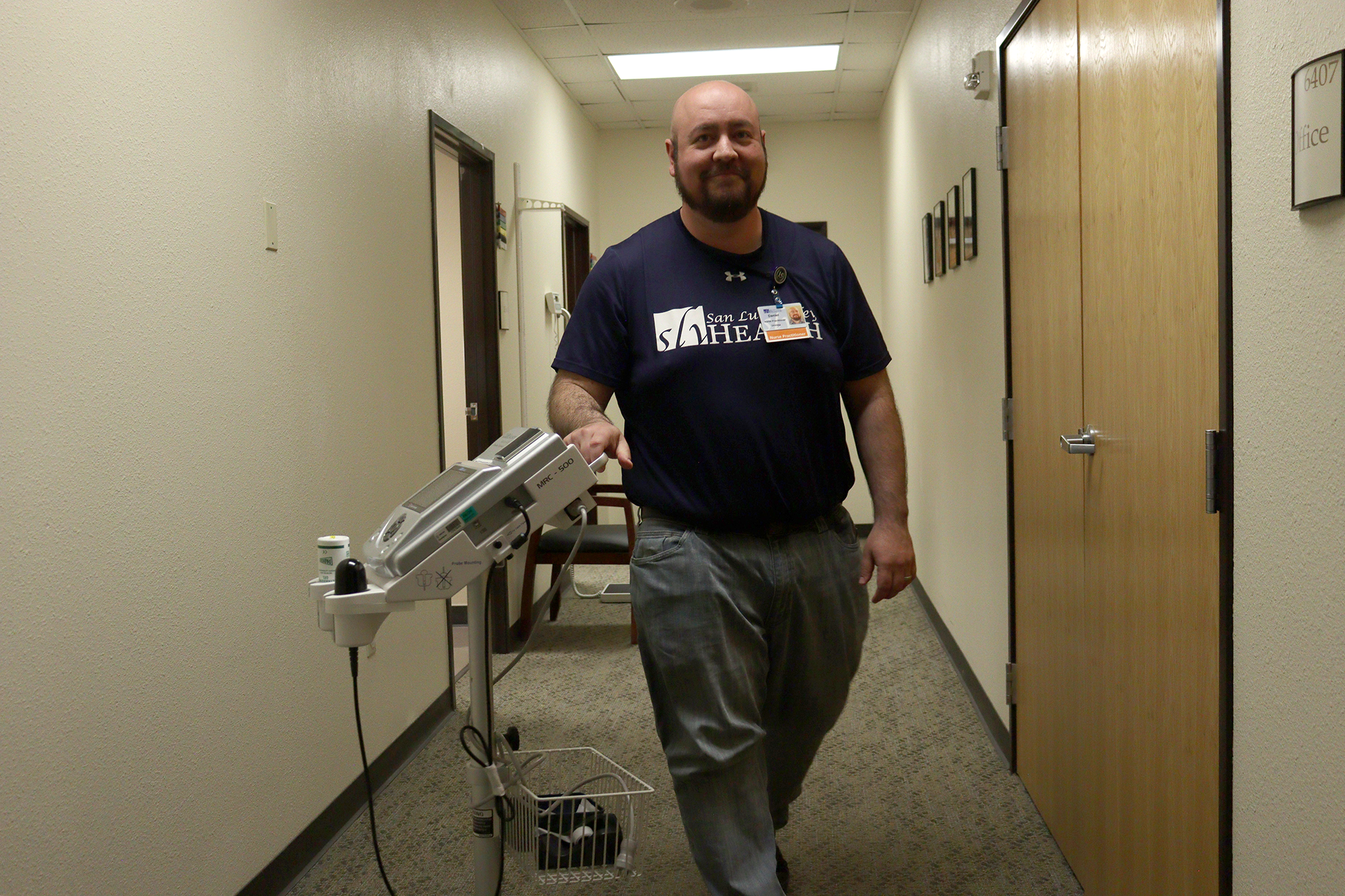Men's Health Awareness Month: What Every Man Should Know About His Health

June is Men's Health Awareness Month, making it the perfect time to raise awareness about the health issues that can affect men here in the San Luis Valley. Daniel Sours, FNP-C specializes in Urology here at San Luis Valley Health, and here he shares his expertise in the health challenges men face and how early detection can help!
Men’s Health: Key Issues in Prostate, Urinary Health, Testosterone, and Erectile Function
Taking care of your health is important, but many men tend to overlook certain issues. Problems like prostate health, low testosterone, erectile dysfunction (ED), and urinary health can affect your daily life, but with proper treatment, many of these issues can be managed effectively. As a nurse practitioner specializing in urology, I help men address these concerns and take control of their health on a daily basis.
Prostate Health: Prevention and Early Detection of Prostate Cancer
The prostate is a small gland found in men that plays an important role in reproduction. As men age, the prostate can change. Some men develop benign prostatic hyperplasia (BPH), which means the prostate becomes enlarged. This can lead to problems like needing to urinate more often, especially at night. Another concern is prostate cancer, which is the second most common type of cancer in men.
It’s important for men to talk to their doctor about screening for prostate problems. A blood test called the PSA test can help doctors identify early signs of problems, including cancer. Men should start talking to their healthcare provider about prostate health when they reach 50, or earlier if there is a family history of prostate cancer.

Urinary Health: Don’t Ignore the Signs
Urinary problems, such as frequent urination, urgency, or pain or burning while urinating, are common in men but not something to simply accept. For many men, issues with an enlarged prostate can cause these symptoms. Other factors, such as urinary infections, kidney stones, or even bladder problems, can also affect urinary health.
If you find yourself going to the bathroom frequently, especially at night, or feeling pain or discomfort while urinating, it’s important to seek medical advice. Simple changes like cutting back on caffeine or alcohol might help, but persistent symptoms should be evaluated by a healthcare provider to rule out more serious conditions.
Low Testosterone: Understanding the Signs
Testosterone is a hormone that helps men maintain muscle mass, energy levels, and a healthy sex drive. As men age, their testosterone levels naturally decrease. However, some men may experience a significant drop, leading to symptoms like extreme fatigue, a loss of interest in activities, or mood changes like irritability or depression.
Low testosterone can also cause problems with sexual function, including erectile dysfunction (ED). If you’re experiencing any of these symptoms, it’s a good idea to talk to a healthcare provider. A blood test can help determine if your testosterone levels are low, and if so, there are treatments like hormone therapy that can help restore them to normal levels.
Erectile Dysfunction (ED): More Common Than You Think
Erectile dysfunction (ED) is the inability to get or maintain an erection firm enough for sex. ED is more common than most people think, and it affects men of all ages. Up to 30 million men in the United States are estimated to be affected by ED. There are many reasons for ED, including health conditions like diabetes, heart disease, and stress. Lifestyle factors, such as poor diet and lack of exercise, can also contribute.
While ED is often linked to aging, it’s not something that should be ignored. There are effective treatments available, such as medications like Viagra and Cialis, as well as other options. Because ED can also be a sign of other health issues, such as heart disease, it is important to talk to a healthcare provider for the right diagnosis and treatment.
Take Control of Your Health
Men’s health issues, including prostate problems, low testosterone, erectile dysfunction, and urinary concerns are common, but they don’t have to control your life. By paying attention to your body and talking to a healthcare provider about any changes, you can take steps toward improving your overall health.
Do not wait for problems to get worse. Many conditions can be treated, so it is important to make your health a priority. If you’re experiencing any of these symptoms, do not hesitate to reach out to a healthcare provider. At San Luis Valley Health Urology Clinic, we manage all of these common men’s health concerns and more. You do not need a referral from your primary care provider to be seen for men’s health. Taking action today can lead to better health tomorrow.
